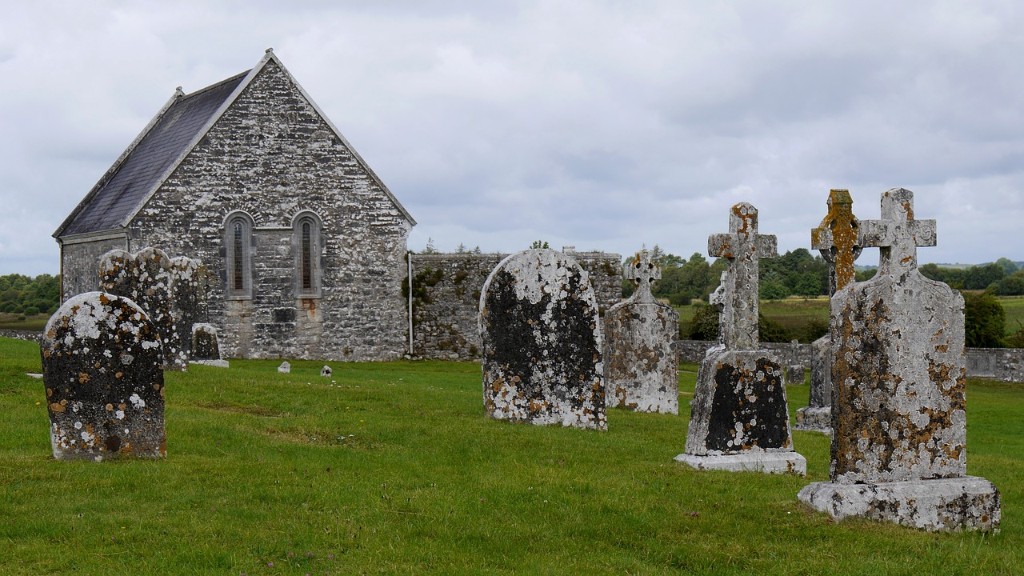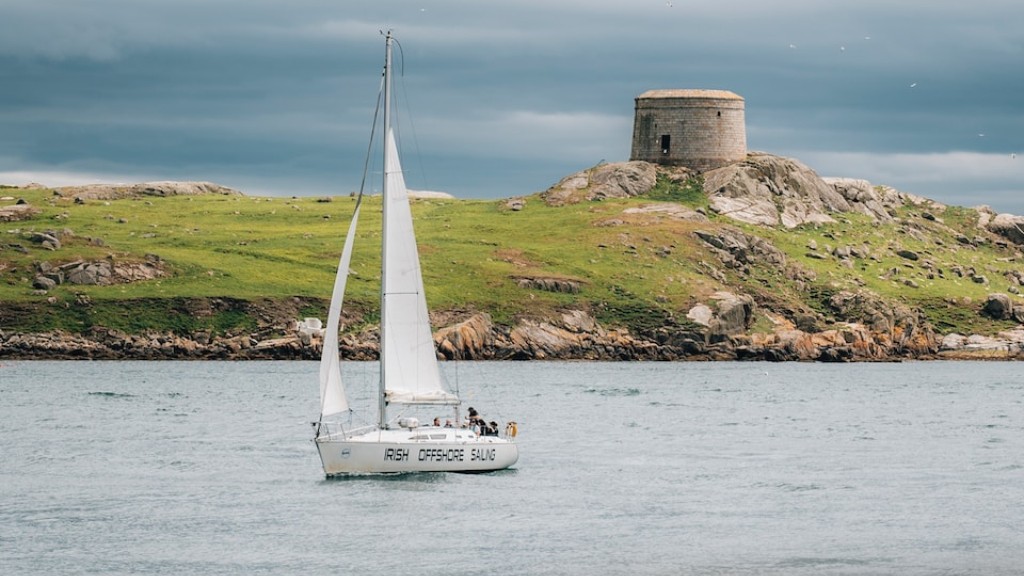Irish Travellers, also called “pavees”, are a distinct ethnic group in Ireland with their own language, culture, and heritage. It is estimated that there are between 30,000 and 40,000 Travellers living in Ireland, making up about 0.5-0.7% of the population. Most Irish Travellers live in compact communities or in public housing, though some live in caravans or on the open road. Despite their long history in Ireland, Traveller communities face significant social and economic challenges. In recent decades, there have been numerous efforts to improve the quality of life for Irish Travellers, though much work remains.
In terms of geography, most Irish Travellers are concentrated in the eastern half of the country, with most living in Dublin and the surrounding areas. Cork, Limerick, and Galway also have large Traveller populations. According to a 2016 census, there were 8,235 Travellers living in Dublin, 3,043 living in Cork, and 2,582 living in Limerick. Generally, Traveller communities in the west of Ireland are smaller, reflecting the generally rural nature of the region and the smaller population centres.
The Irish Traveller task force report from 2016 suggested that the development of infrastructure was one of the greatest barriers to Traveller communities. Most Travellers live in overcrowded caravans, or in run-down houses which lack basic amenities like running water and usable hygiene facilities. Furthermore, the report found that Travellers were also far more likely to be unemployed, and that they faced additional obstacles like discrimination and prejudice when looking for suitable housing and employment.
To address these issues, the Irish government has invested in programmes designed to improve Traveller housing requirements. This includes the Traveller Accommodation Programme (TAP), which has been running since 2018. TAP provides grants for the development of new housing schemes for Travellers, as well as refurbishing and improvements to existing Traveller residences. This has been complemented by other initiatives such as the Traveller Health and Wellbeing Programme, which provides access to healthcare, community development and educational opportunities to Travellers.
In general, although some progress has been made in terms of improving the quality of life for Irish Travellers, there is still much work to be done in order to ensure equity and equality. While some initiatives have sought to address the underlying issues faced by the Traveller community, there is still a need for greater investment and for ongoing redistribution of resources to reduce the gap between Traveller and majority populations in Ireland.
Healthcare Provision for Travellers
One of the major issues faced by Irish Travellers is a lack of access to healthcare services and resources. While Travellers in Ireland can access public health services under the public health system, they often face additional barriers and higher financial costs. This is due in part to the fact that Travellers often live in remote or rural areas with limited access to healthcare facilities, and in part to the lack of awareness about existing healthcare services among Travellers.
In response to the challenge of providing healthcare to Travellers, the Irish government established the Traveller Health Unit (THU). The THU works in partnership with public health services and other community based organisations to provide access to healthcare for Travellers. It provides cultural awareness training to health services staff and engages with members of the Traveller community to promote the use of health care facilities and services.
In addition to the THU, the Irish government has also taken steps to improve the quality of healthcare available to Travellers. For example, in 2019 the Traveller Primary Care Strategy was launched with the aim of improving access to primary healthcare professionals and increasing the availability of specialised services. Additionally, Traveller specific health services have been established across the country, providing access to GPs, nurses, nutritionists, and other healthcare professionals for Travellers.
Educational Opportunities for Travellers
Education is another area where Irish Travellers face significant disadvantages. Research has shown that Travellers are significantly underrepresented in higher education, with only 4% of Travellers aged between 18 and 24 attending college compared to the national average of 12%. In 2018, the Irish government launched the National Traveller and Roma Inclusion Strategy (NTRIS), which included a commitment to expanding access to education for Travellers.
The NTRIS has focused on a number of initiatives, such as increasing the number of Traveller-specific schools and increasing the number of teaching staff with appropriate cultural awareness training. Additionally, greater emphasis has been placed on providing information about available educational opportunities, including support and advice to Travellers. The NTRIS has also prioritised expanding access to apprenticeships, internships, and other vocational training programmes for Travellers.
In addition, the government has also taken steps to improve curriculum content related to Irish Traveller culture and heritage. For example, a number of primary and secondary schools have developed programmes designed to teach students about Traveller backgrounds, and there has been a general push to include educational materials about Traveller history and culture in the curriculum.
Government Policy and Support for Travellers
The Irish government has taken a number of initiatives to support Traveller communities in the form of policy changes and legislative reforms. These have included steps such as the introduction of an anti-discrimination bills, which prohibit discrimination against Travellers in areas such as employment, housing, and healthcare. The government has also formally recognised Traveller culture as distinct from the majority population through the 2014 Act on Traveller Cultural Heritage.
In addition, the Irish government has invested in programmes specifically designed to increase the quality of life for Travellers, such as the Traveller Accommodation Programme and Traveller Health and Wellbeing Programme. Furthermore, the government has also committed to tackling hate crime, and has made efforts to educate the public on Irish Traveller culture and heritage.
Overall, the initiatives taken by the Irish government to support Traveller in Ireland have had a positive effect. They have increased Travellers’ access to resources and services, and have helped to address long-standing issues relating to educational opportunities, cultural inclusion, and employment discrimination.
Traveller Representation in the Media
In recent years, there has been an increased focus on improving Traveller representation in the media. This has included initiatives such as the Irish Traveller Movement’s Traveller “Yourself” campaign, which seeks to counter negative stereotypes by highlighting positive Irish Traveller stories and achievements. Additionally, the RTÉ Traveller series “Travellers’ Lives” provided a platform for Irish Travellers to tell their own stories and to discuss issues such as racism, discrimination, and prejudice.
Other media channels have also sought to promote positive images of Irish Travellers. For example, the RTÉ radio series “Travellers on the Move” provides a platform for Travellers to share their journey and to discuss the challenges and successes of daily life. Additionally, the programme “Irish Travellers: the Untold Story” has sought to challenge negative stereotypes and to promote greater awareness and understanding of the Traveller community.
Overall, there has been increasing recognition of the importance of Traveller representation in the media. This is seen as an important step towards improved Traveller inclusion in Irish society, and towards dispelling the negative stereotypes that exist about Travellers.
Discrimination and Prejudice Towards Travellers
Despite the positive progress that has been made in recent years, discrimination and prejudice towards Travellers is still unfortunately prevalent in Irish society. Research by the Equality Authority has found that Travellers are at significantly higher risk of being discriminated against in areas such as employment and public services, and research by the Traveller Movement found that 73% of Travellers have experienced racism or prejudice.
In response to this challenge, the Irish government has taken a number of initiatives to counter stereotypical attitudes. This has included funding for the Traveller Pride initiative, which works to raise awareness of Traveller rights, culture, and identity. Additionally, the government has launched the “Educate Against Hate” programme which is aimed at educating the public about Traveller lives and experiences.
Overall, although there has been progress in terms of improving Traveller representation and reducing prejudice, much more work remains to be done. To fully address the issue of prejudice and discrimination, there must be ongoing efforts to promote greater understanding and acceptance of the Traveller community.
Conclusion
In conclusion, Travellers in Ireland face significant social and economic challenges, including issues such as overcrowded dwellings, educational disadvantage, and discrimination. In recent years, the Irish government has taken a number of initiatives to address these issues, though much remains to be done in terms of achieving equity and equality for Travellers. It is important that ongoing efforts are made to promote awareness of the unique culture and heritage of Travellers, to oppose prejudice, and to ensure that Travellers benefit from the same standards of socio-economic opportunity and welfare as the majority population.





